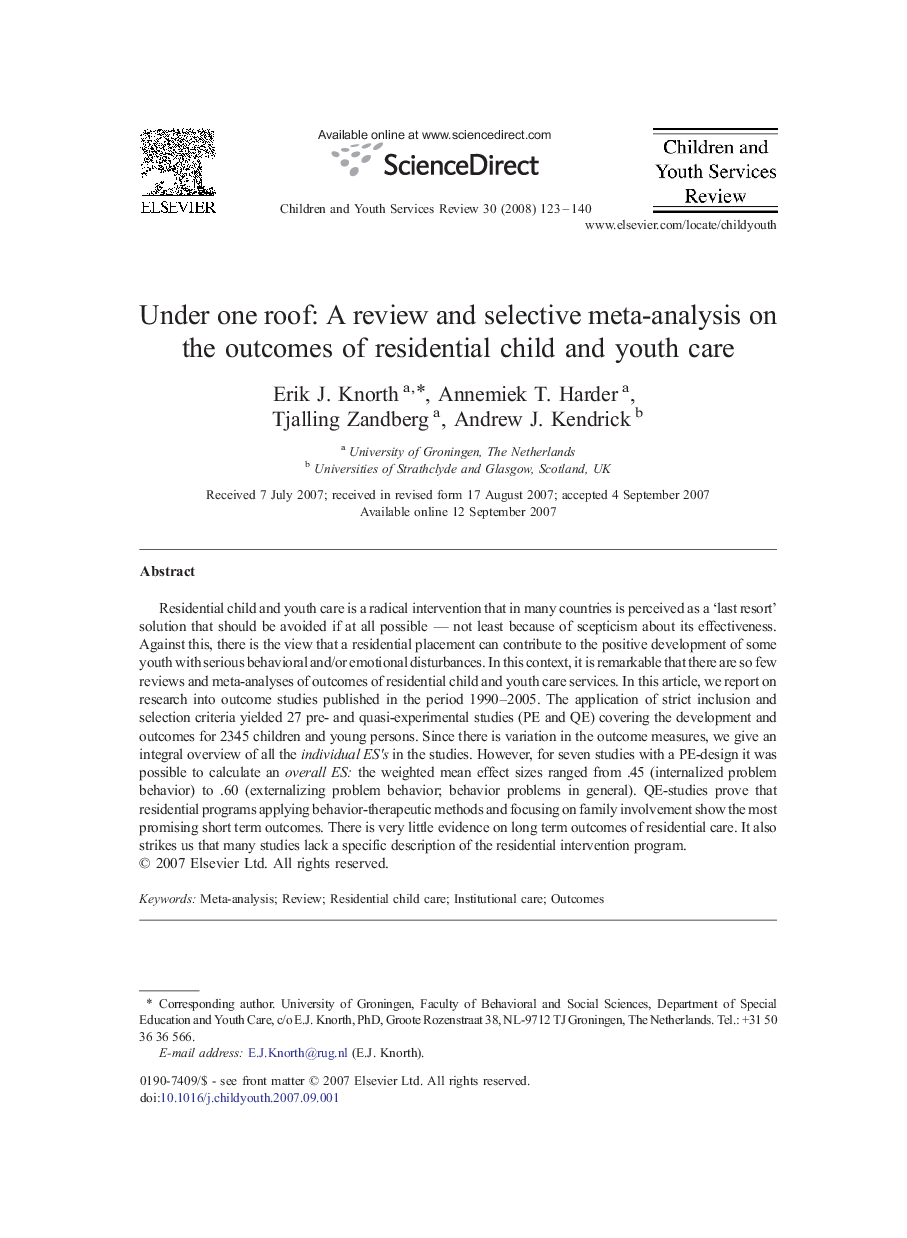| Article ID | Journal | Published Year | Pages | File Type |
|---|---|---|---|---|
| 346989 | Children and Youth Services Review | 2008 | 18 Pages |
Residential child and youth care is a radical intervention that in many countries is perceived as a ‘last resort’ solution that should be avoided if at all possible — not least because of scepticism about its effectiveness. Against this, there is the view that a residential placement can contribute to the positive development of some youth with serious behavioral and/or emotional disturbances. In this context, it is remarkable that there are so few reviews and meta-analyses of outcomes of residential child and youth care services. In this article, we report on research into outcome studies published in the period 1990–2005. The application of strict inclusion and selection criteria yielded 27 pre- and quasi-experimental studies (PE and QE) covering the development and outcomes for 2345 children and young persons. Since there is variation in the outcome measures, we give an integral overview of all the individual ES's in the studies. However, for seven studies with a PE-design it was possible to calculate an overall ES: the weighted mean effect sizes ranged from .45 (internalized problem behavior) to .60 (externalizing problem behavior; behavior problems in general). QE-studies prove that residential programs applying behavior-therapeutic methods and focusing on family involvement show the most promising short term outcomes. There is very little evidence on long term outcomes of residential care. It also strikes us that many studies lack a specific description of the residential intervention program.
